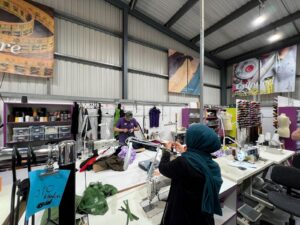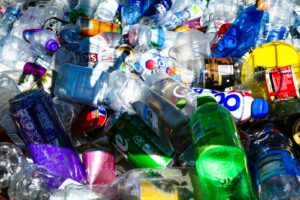Deposit schemes aren’t the answer – we need a joined up response to recycling and litter
The article Has Scotland got the bottle for deposit return schemes? cherry-picks data in an attempt to make a case that applying a deposit system, DRS, to drinks containers will save money – on the contrary, evidence shows it will cost councils, consumers and businesses.
The Packaging Recycling Group Scotland (PRGS) is committed to helping realise the Scottish government’s ambitions to tackle litter and increase recycling. We do not, however, believe that a DRS is the right approach. It would be an unfair, regressive measure that would penalise low-income and less able consumers who would have to pay the extra cost upfront but may find it difficult to reclaim their deposits.
The article quotes selectively data from other countries, including those that introduced deposit return systems years ago in totally different circumstances compared with Scotland today.
In contrast to the claims that councils might save money, a study prepared by Valpak concluded that a DRS in Scotland would result in a substantial loss of income to councils, estimated at £8.9m a year because they would lose the income they currently can make from the value of drinks containers recyclate. At a time of cuts in budgets, councils cannot afford to take risks with this amount of money.
The article quotes a report from New South Wales, Australia, that estimates possible financial gains for councils. It does not mention another Australian report that estimates financial losses to councils of $12.6m a year if a DRS was introduced.
Over 80% of Scottish households have kerbside recycling collection. In the article one councillor says his council has to pay to have recyclables taken away. This is not the norm. Any well-functioning kerbside system produces used packaging materials that will be paid for – aluminium can recyclate, for example, is worth £800 per tonne.
A better way to tackle litter is for all stakeholders to join forces and encourage people to take pride in their environment by preventing all types of litter
Scotland has already invested heavily in recycling drinks containers and all other types of recyclables. Supporting the Scottish Government and COSLA’s Recycling Charter will be much better than diverting a selection of recyclables (drinks bottles and cans) to another route via a DRS. This would require putting extra lorries on the roads, increasing carbon emissions, to deliver them to the same place as kerbside-collected materials.
Countries that have said no to DRS and have kerbside recycling see far better outcomes. Belgium rejected a DRS system and has an 80% recycling rate. Sweden, which has operated a deposit system for 30 years, recycles 57%. Only 30% of Swedish households have kerbside collections.
In terms of litter, deposit schemes have no impact on changing a litterer’s behaviour and there is no evidence that they reduce overall litter levels. On the contrary, there is anecdotal evidence that deposits actually increase overall litter levels because bins are emptied to find deposit-bearing containers and the rest of the rubbish is left on the ground. Like recycling, deposits are a piecemeal approach to the issue.
A better way to tackle litter is to for all stakeholders to join forces and encourage people to take pride in their environment by preventing all types of litter.
A deposit system will not work in Scotland. The government has already spent over three years considering it and £1m of taxpayers’ money trialling it. The trials provided no evidence that a deposit system would be supported by the public or that it would have any impact on litter or recycling. Last year, over 80% of respondents to the Scottish Government’s call for further evidence were against DRS.
On top of the financial losses that councils would suffer, the cost of installing DRS machines would be more than £16m and there would be additional operational costs such as several million pounds a year to backhaul bottles from the Scottish islands.
Let’s work together on solutions that will work for Scotland – building on the existing recycling system, supporting the Recycling Charter and supporting litter prevention and clean up campaigns. PRGS is already helping and is keen to do more.
















